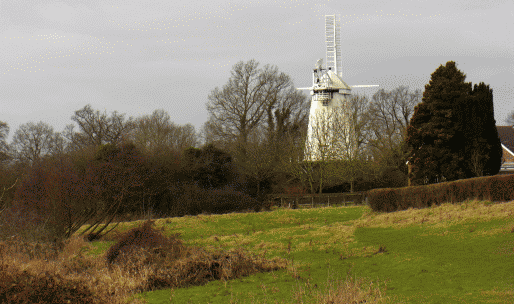It will be apparent that what is called the " Frederician Tradition," which is the soul of Prussia in her international relations, is not an unprincipled thing. It has a principle, and that principle is a patriotic desire to strengthen Prussia, which particular appetite overweighs all general human morals and far outweighs all special Christian or European morals.
This doctrine of the " Frederician Tradition " does not mean that the Prussian statesmen wantonly do wrong, whether in acts of cruelty or in acts of treason and bad faith. What it means is that, wherever they are met by the dilemma, " Shall I do this, which is to the advantage of my country but opposed to European and common morals, or that, which is consonant with those morals but to the dis- advantage of my country } " they choose the former and not the latter course.
Prussia, endowed with this doctrine and possessed of a most excellent military organization and tradition, stood out as the first military power in Europe until the French Revolution. The wars of the French Revolution and of Napoleon upset this prestige, and in the battle of Jena (1806) seemed to have destroyed it. But it was too strong to be destroyed. The Prussian Government was the first of Napoleon's allies to betray Napoleon after the Russians had broken his power (1812). They took part with the other Allies in finishing off Napoleon after the Russian campaign (1813-14) ; they were present with decisive effect upon the final field of Waterloo (1815) , and remained for fifty years afterwards the great military power they had always been. They had further added to their dominions such great areas in Northern Germany, beyond the original areas inhabited by the true Prussian stock, that they were something like half of the whole Northern German people when, in 1864, they entered into the last phase of their dominion. They began by asking Austria to help them in taking from Denmark, a small and weak country, not only those provinces of hers which spoke German, but certain districts which were Danish as well. France and England were inclined to interfere, but they did not yet understand the menace Prussia might be in the future, and they neglected to act. Two years later Prussia suddenly turned upon Austria, her ally, defeated her in a very short campaign, and insisted upon Austria's relinquishing for the future all claims over any part of the German-speaking peoples, save some ten millions in the valley of the Middle Danube and of the Upper Elbe. Four years later again, in 1870, Prussia having arranged, after various political experiments which need not be here de- tailed, for the support of all the German States except Austria, fought a war with France, in which she was immediately and entirely successful, and in the course of which the rulers of the other German States consented to give the Hohenzollern-Prussian dynasty supreme military power for the future over them, under the hereditary title of German Emperors ; to form a united nation under the more or less despotic power of these emperors. This latter point, the national unity, though really highly centralized at Berlin, especially on the military side, was softened in its rigour by a number of very wise provisions. A great measure of autonomy was left to the more important of the lesser States, particularly Catholic Bavaria ; local customs were respected ; and, above all, local dynasties were flattered, and maintained in all the trappings of sovereign rank.
From that date that is, for the last forty-four years there has been a complete Northern Germany, one strong, centralized, and thoroughly co-ordinated nation, in which the original Prussian domination is not only numerically far the greatest element, but morally overshadows all the rest. The spiritual influence ruling this state issues from Berlin and from the Prussian soul, although a large minority consist of contented but respectful Catholics, who, in all national matters, wholly sympathize with and take their cue from the Protestant North.
So far one may clearly see what kind of power it is that has initiated the German theory of supremacy which we have described above, is prepared to lead it to battle, and is quite certain of leading it to victory.
But we note the fatal mark in all German history that the unity is not complete. The ten millions of Austrian Germans were, when Prussia achieved this her highest ambition, deliberately left out- side the new German Empire. And this was done because, in Prussian eyes, a so- called " German unity" was but a means to an end, and that end the aggrandizement of the Hohenzollern dynasty. To include so many southern and Catholic Germans would have endangered the mastery of Berlin. The fact that Austria ruled a number of non-German subjects far larger than her Austrian population would further have endangered the Hohenzollern position had Austria been admitted to the new German Empire, and had the consolidation of all Germans into one true state been really and loyally attempted. Lastly, it would have been impossible to destroy the historic claims to leadership of the Imperial Hapsburgs, and that, more than anything else, was the rivalry the Hohenzollerns dreaded. Once more had the Germans proved themselves incapable of, and unwilling to submit to, the discipline of unity. What part, then, was Austria, thus left out, to play in the international activity of Prussia in the future? What part especially was she to play when Prussia, at the head of Northern Germany, should go out to impose the will of that Germany and of herself upon the rest of the world? That is the next question we must answer before we can hope to understand the causes of the present war in their entirety.
From A General Sketch of the European War (Part 1 The General Causes of the War, Prussia). 1915.


